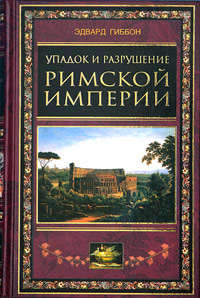
Полная версия
History of the Decline and Fall of the Roman Empire - Volume 2
The sober discretion of the present age will more readily censure than admire, but can more easily admire than imitate, the fervor of the first Christians, who, according to the lively expressions of Sulpicius Severus, desired martyrdom with more eagerness than his own contemporaries solicited a bishopric. The epistles which Ignatius composed as he was carried in chains through the cities of Asia, breathe sentiments the most repugnant to the ordinary feelings of human nature. He earnestly beseeches the Romans, that when he should be exposed in the amphitheatre, they would not, by their kind but unseasonable intercession, deprive him of the crown of glory; and he declares his resolution to provoke and irritate the wild beasts which might be employed as the instruments of his death. Some stories are related of the courage of martyrs, who actually performed what Ignatius had intended; who exasperated the fury of the lions, pressed the executioner to hasten his office, cheerfully leaped into the fires which were kindled to consume them, and discovered a sensation of joy and pleasure in the midst of the most exquisite tortures. Several examples have been preserved of a zeal impatient of those restraints which the emperors had provided for the security of the church. The Christians sometimes supplied by their voluntary declaration the want of an accuser, rudely disturbed the public service of paganism, and rushing in crowds round the tribunal of the magistrates, called upon them to pronounce and to inflict the sentence of the law. The behavior of the Christians was too remarkable to escape the notice of the ancient philosophers; but they seem to have considered it with much less admiration than astonishment. Incapable of conceiving the motives which sometimes transported the fortitude of believers beyond the bounds of prudence or reason, they treated such an eagerness to die as the strange result of obstinate despair, of stupid insensibility, or of superstitious frenzy. "Unhappy men!" exclaimed the proconsul Antoninus to the Christians of Asia; "unhappy men! if you are thus weary of your lives, is it so difficult for you to find ropes and precipices?" He was extremely cautious (as it is observed by a learned and pious historian) of punishing men who had found no accusers but themselves, the Imperial laws not having made any provision for so unexpected a case: condemning therefore a few as a warning to their brethren, he dismissed the multitude with indignation and contempt. Notwithstanding this real or affected disdain, the intrepid constancy of the faithful was productive of more salutary effects on those minds which nature or grace had disposed for the easy reception of religious truth. On these melancholy occasions, there were many among the Gentiles who pitied, who admired, and who were converted. The generous enthusiasm was communicated from the sufferer to the spectators; and the blood of martyrs, according to a well-known observation, became the seed of the church.
But although devotion had raised, and eloquence continued to inflame, this fever of the mind, it insensibly gave way to the more natural hopes and fears of the human heart, to the love of life, the apprehension of pain, and the horror of dissolution. The more prudent rulers of the church found themselves obliged to restrain the indiscreet ardor of their followers, and to distrust a constancy which too often abandoned them in the hour of trial. As the lives of the faithful became less mortified and austere, they were every day less ambitious of the honors of martyrdom; and the soldiers of Christ, instead of distinguishing themselves by voluntary deeds of heroism, frequently deserted their post, and fled in confusion before the enemy whom it was their duty to resist. There were three methods, however, of escaping the flames of persecution, which were not attended with an equal degree of guilt: first, indeed, was generally allowed to be innocent; the second was of a doubtful, or at least of a venial, nature; but the third implied a direct and criminal apostasy from the Christian faith.
I. A modern inquisitor would hear with surprise, that whenever an information was given to a Roman magistrate of any person within his jurisdiction who had embraced the sect of the Christians, the charge was communicated to the party accused, and that a convenient time was allowed him to settle his domestic concerns, and to prepare an answer to the crime which was imputed to him. If he entertained any doubt of his own constancy, such a delay afforded him the opportunity of preserving his life and honor by flight, of withdrawing himself into some obscure retirement or some distant province, and of patiently expecting the return of peace and security. A measure so consonant to reason was soon authorized by the advice and example of the most holy prelates; and seems to have been censured by few except by the Montanists, who deviated into heresy by their strict and obstinate adherence to the rigor of ancient discipline. II. The provincial governors, whose zeal was less prevalent than their avarice, had countenanced the practice of selling certificates, (or libels, as they were called,) which attested, that the persons therein mentioned had complied with the laws, and sacrificed to the Roman deities. By producing these false declarations, the opulent and timid Christians were enabled to silence the malice of an informer, and to reconcile in some measure their safety with their religion. A slight penance atoned for this profane dissimulation. * III. In every persecution there were great numbers of unworthy Christians who publicly disowned or renounced the faith which they had professed; and who confirmed the sincerity of their abjuration, by the legal acts of burning incense or of offering sacrifices. Some of these apostates had yielded on the first menace or exhortation of the magistrate; whilst the patience of others had been subdued by the length and repetition of tortures. The affrighted countenances of some betrayed their inward remorse, while others advanced with confidence and alacrity to the altars of the gods. But the disguise which fear had imposed, subsisted no longer than the present danger. As soon as the severity of the persecution was abated, the doors of the churches were assailed by the returning multitude of penitents who detested their idolatrous submission, and who solicited with equal ardor, but with various success, their readmission into the society of Christians.
IV. Notwithstanding the general rules established for the conviction and punishment of the Christians, the fate of those sectaries, in an extensive and arbitrary government, must still in a great measure, have depended on their own behavior, the circumstances of the times, and the temper of their supreme as well as subordinate rulers. Zeal might sometimes provoke, and prudence might sometimes avert or assuage, the superstitious fury of the Pagans. A variety of motives might dispose the provincial governors either to enforce or to relax the execution of the laws; and of these motives the most forcible was their regard not only for the public edicts, but for the secret intentions of the emperor, a glance from whose eye was sufficient to kindle or to extinguish the flames of persecution. As often as any occasional severities were exercised in the different parts of the empire, the primitive Christians lamented and perhaps magnified their own sufferings; but the celebrated number of ten persecutions has been determined by the ecclesiastical writers of the fifth century, who possessed a more distinct view of the prosperous or adverse fortunes of the church, from the age of Nero to that of Diocletian. The ingenious parallels of the ten plagues of Egypt, and of the ten horns of the Apocalypse, first suggested this calculation to their minds; and in their application of the faith of prophecy to the truth of history, they were careful to select those reigns which were indeed the most hostile to the Christian cause. But these transient persecutions served only to revive the zeal and to restore the discipline of the faithful; and the moments of extraordinary rigor were compensated by much longer intervals of peace and security. The indifference of some princes, and the indulgence of others, permitted the Christians to enjoy, though not perhaps a legal, yet an actual and public, toleration of their religion.
Chapter XVI: Conduct Towards The Christians, From Nero To Constantine.—Part V.
The apology of Tertullian contains two very ancient, very singular, but at the same time very suspicious, instances of Imperial clemency; the edicts published by Tiberius, and by Marcus Antoninus, and designed not only to protect the innocence of the Christians, but even to proclaim those stupendous miracles which had attested the truth of their doctrine. The first of these examples is attended with some difficulties which might perplex a sceptical mind. We are required to believe, that Pontius Pilate informed the emperor of the unjust sentence of death which he had pronounced against an innocent, and, as it appeared, a divine, person; and that, without acquiring the merit, he exposed himself to the danger of martyrdom; that Tiberius, who avowed his contempt for all religion, immediately conceived the design of placing the Jewish Messiah among the gods of Rome; that his servile senate ventured to disobey the commands of their master; that Tiberius, instead of resenting their refusal, contented himself with protecting the Christians from the severity of the laws, many years before such laws were enacted, or before the church had assumed any distinct name or existence; and lastly, that the memory of this extraordinary transaction was preserved in the most public and authentic records, which escaped the knowledge of the historians of Greece and Rome, and were only visible to the eyes of an African Christian, who composed his apology one hundred and sixty years after the death of Tiberius. The edict of Marcus Antoninus is supposed to have been the effect of his devotion and gratitude for the miraculous deliverance which he had obtained in the Marcomannic war. The distress of the legions, the seasonable tempest of rain and hail, of thunder and of lightning, and the dismay and defeat of the barbarians, have been celebrated by the eloquence of several Pagan writers. If there were any Christians in that army, it was natural that they should ascribe some merit to the fervent prayers, which, in the moment of danger, they had offered up for their own and the public safety. But we are still assured by monuments of brass and marble, by the Imperial medals, and by the Antonine column, that neither the prince nor the people entertained any sense of this signal obligation, since they unanimously attribute their deliverance to the providence of Jupiter, and to the interposition of Mercury. During the whole course of his reign, Marcus despised the Christians as a philosopher, and punished them as a sovereign. *
By a singular fatality, the hardships which they had endured under the government of a virtuous prince, immediately ceased on the accession of a tyrant; and as none except themselves had experienced the injustice of Marcus, so they alone were protected by the lenity of Commodus. The celebrated Marcia, the most favored of his concubines, and who at length contrived the murder of her Imperial lover, entertained a singular affection for the oppressed church; and though it was impossible that she could reconcile the practice of vice with the precepts of the gospel, she might hope to atone for the frailties of her sex and profession by declaring herself the patroness of the Christians. Under the gracious protection of Marcia, they passed in safety the thirteen years of a cruel tyranny; and when the empire was established in the house of Severus, they formed a domestic but more honorable connection with the new court. The emperor was persuaded, that in a dangerous sickness, he had derived some benefit, either spiritual or physical, from the holy oil, with which one of his slaves had anointed him. He always treated with peculiar distinction several persons of both sexes who had embraced the new religion. The nurse as well as the preceptor of Caracalla were Christians; * and if that young prince ever betrayed a sentiment of humanity, it was occasioned by an incident, which, however trifling, bore some relation to the cause of Christianity. Under the reign of Severus, the fury of the populace was checked; the rigor of ancient laws was for some time suspended; and the provincial governors were satisfied with receiving an annual present from the churches within their jurisdiction, as the price, or as the reward, of their moderation. The controversy concerning the precise time of the celebration of Easter, armed the bishops of Asia and Italy against each other, and was considered as the most important business of this period of leisure and tranquillity. Nor was the peace of the church interrupted, till the increasing numbers of proselytes seem at length to have attracted the attention, and to have alienated the mind of Severus. With the design of restraining the progress of Christianity, he published an edict, which, though it was designed to affect only the new converts, could not be carried into strict execution, without exposing to danger and punishment the most zealous of their teachers and missionaries. In this mitigated persecution we may still discover the indulgent spirit of Rome and of Polytheism, which so readily admitted every excuse in favor of those who practised the religious ceremonies of their fathers.
But the laws which Severus had enacted soon expired with the authority of that emperor; and the Christians, after this accidental tempest, enjoyed a calm of thirty-eight years. Till this period they had usually held their assemblies in private houses and sequestered places. They were now permitted to erect and consecrate convenient edifices for the purpose of religious worship; to purchase lands, even at Rome itself, for the use of the community; and to conduct the elections of their ecclesiastical ministers in so public, but at the same time in so exemplary a manner, as to deserve the respectful attention of the Gentiles. This long repose of the church was accompanied with dignity. The reigns of those princes who derived their extraction from the Asiatic provinces, proved the most favorable to the Christians; the eminent persons of the sect, instead of being reduced to implore the protection of a slave or concubine, were admitted into the palace in the honorable characters of priests and philosophers; and their mysterious doctrines, which were already diffused among the people, insensibly attracted the curiosity of their sovereign. When the empress Mammæa passed through Antioch, she expressed a desire of conversing with the celebrated Origen, the fame of whose piety and learning was spread over the East. Origen obeyed so flattering an invitation, and though he could not expect to succeed in the conversion of an artful and ambitious woman, she listened with pleasure to his eloquent exhortations, and honorably dismissed him to his retirement in Palestine. The sentiments of Mammæa were adopted by her son Alexander, and the philosophic devotion of that emperor was marked by a singular but injudicious regard for the Christian religion. In his domestic chapel he placed the statues of Abraham, of Orpheus, of Apollonius, and of Christ, as an honor justly due to those respectable sages who had instructed mankind in the various modes of addressing their homage to the supreme and universal Deity. A purer faith, as well as worship, was openly professed and practised among his household. Bishops, perhaps for the first time, were seen at court; and, after the death of Alexander, when the inhuman Maximin discharged his fury on the favorites and servants of his unfortunate benefactor, a great number of Christians of every rank and of both sexes, were involved the promiscuous massacre, which, on their account, has improperly received the name of Persecution. *
Notwithstanding the cruel disposition of Maximin, the effects of his resentment against the Christians were of a very local and temporary nature, and the pious Origen, who had been proscribed as a devoted victim, was still reserved to convey the truths of the gospel to the ear of monarchs. He addressed several edifying letters to the emperor Philip, to his wife, and to his mother; and as soon as that prince, who was born in the neighborhood of Palestine, had usurped the Imperial sceptre, the Christians acquired a friend and a protector. The public and even partial favor of Philip towards the sectaries of the new religion, and his constant reverence for the ministers of the church, gave some color to the suspicion, which prevailed in his own times, that the emperor himself was become a convert to the faith; and afforded some grounds for a fable which was afterwards invented, that he had been purified by confession and penance from the guilt contracted by the murder of his innocent predecessor. The fall of Philip introduced, with the change of masters, a new system of government, so oppressive to the Christians, that their former condition, ever since the time of Domitian, was represented as a state of perfect freedom and security, if compared with the rigorous treatment which they experienced under the short reign of Decius. The virtues of that prince will scarcely allow us to suspect that he was actuated by a mean resentment against the favorites of his predecessor; and it is more reasonable to believe, that in the prosecution of his general design to restore the purity of Roman manners, he was desirous of delivering the empire from what he condemned as a recent and criminal superstition. The bishops of the most considerable cities were removed by exile or death: the vigilance of the magistrates prevented the clergy of Rome during sixteen months from proceeding to a new election; and it was the opinion of the Christians, that the emperor would more patiently endure a competitor for the purple, than a bishop in the capital. Were it possible to suppose that the penetration of Decius had discovered pride under the disguise of humility, or that he could foresee the temporal dominion which might insensibly arise from the claims of spiritual authority, we might be less surprised, that he should consider the successors of St. Peter, as the most formidable rivals to those of Augustus.
The administration of Valerian was distinguished by a levity and inconstancy ill suited to the gravity of the Roman Censor. In the first part of his reign, he surpassed in clemency those princes who had been suspected of an attachment to the Christian faith. In the last three years and a half, listening to the insinuations of a minister addicted to the superstitions of Egypt, he adopted the maxims, and imitated the severity, of his predecessor Decius. The accession of Gallienus, which increased the calamities of the empire, restored peace to the church; and the Christians obtained the free exercise of their religion by an edict addressed to the bishops, and conceived in such terms as seemed to acknowledge their office and public character. The ancient laws, without being formally repealed, were suffered to sink into oblivion; and (excepting only some hostile intentions which are attributed to the emperor Aurelian ) the disciples of Christ passed above forty years in a state of prosperity, far more dangerous to their virtue than the severest trials of persecution.
The story of Paul of Samosata, who filled the metropolitan see of Antioch, while the East was in the hands of Odenathus and Zenobia, may serve to illustrate the condition and character of the times. The wealth of that prelate was a sufficient evidence of his guilt, since it was neither derived from the inheritance of his fathers, nor acquired by the arts of honest industry. But Paul considered the service of the church as a very lucrative profession. His ecclesiastical jurisdiction was venal and rapacious; he extorted frequent contributions from the most opulent of the faithful, and converted to his own use a considerable part of the public revenue. By his pride and luxury, the Christian religion was rendered odious in the eyes of the Gentiles. His council chamber and his throne, the splendor with which he appeared in public, the suppliant crowd who solicited his attention, the multitude of letters and petitions to which he dictated his answers, and the perpetual hurry of business in which he was involved, were circumstances much better suited to the state of a civil magistrate, than to the humility of a primitive bishop. When he harangued his people from the pulpit, Paul affected the figurative style and the theatrical gestures of an Asiatic sophist, while the cathedral resounded with the loudest and most extravagant acclamations in the praise of his divine eloquence. Against those who resisted his power, or refused to flatter his vanity, the prelate of Antioch was arrogant, rigid, and inexorable; but he relaxed the discipline, and lavished the treasures of the church on his dependent clergy, who were permitted to imitate their master in the gratification of every sensual appetite. For Paul indulged himself very freely in the pleasures of the table, and he had received into the episcopal palace two young and beautiful women as the constant companions of his leisure moments.
Notwithstanding these scandalous vices, if Paul of Samosata had preserved the purity of the orthodox faith, his reign over the capital of Syria would have ended only with his life; and had a seasonable persecution intervened, an effort of courage might perhaps have placed him in the rank of saints and martyrs. * Some nice and subtle errors, which he imprudently adopted and obstinately maintained, concerning the doctrine of the Trinity, excited the zeal and indignation of the Eastern churches. From Egypt to the Euxine Sea, the bishops were in arms and in motion. Several councils were held, confutations were published, excommunications were pronounced, ambiguous explanations were by turns accepted and refused, treaties were concluded and violated, and at length Paul of Samosata was degraded from his episcopal character, by the sentence of seventy or eighty bishops, who assembled for that purpose at Antioch, and who, without consulting the rights of the clergy or people, appointed a successor by their own authority. The manifest irregularity of this proceeding increased the numbers of the discontented faction; and as Paul, who was no stranger to the arts of courts, had insinuated himself into the favor of Zenobia, he maintained above four years the possession of the episcopal house and office. * The victory of Aurelian changed the face of the East, and the two contending parties, who applied to each other the epithets of schism and heresy, were either commanded or permitted to plead their cause before the tribunal of the conqueror. This public and very singular trial affords a convincing proof that the existence, the property, the privileges, and the internal policy of the Christians, were acknowledged, if not by the laws, at least by the magistrates, of the empire. As a Pagan and as a soldier, it could scarcely be expected that Aurelian should enter into the discussion, whether the sentiments of Paul or those of his adversaries were most agreeable to the true standard of the orthodox faith. His determination, however, was founded on the general principles of equity and reason. He considered the bishops of Italy as the most impartial and respectable judges among the Christians, and as soon as he was informed that they had unanimously approved the sentence of the council, he acquiesced in their opinion, and immediately gave orders that Paul should be compelled to relinquish the temporal possessions belonging to an office, of which, in the judgment of his brethren, he had been regularly deprived. But while we applaud the justice, we should not overlook the policy, of Aurelian, who was desirous of restoring and cementing the dependence of the provinces on the capital, by every means which could bind the interest or prejudices of any part of his subjects.
Amidst the frequent revolutions of the empire, the Christians still flourished in peace and prosperity; and notwithstanding a celebrated æra of martyrs has been deduced from the accession of Diocletian, the new system of policy, introduced and maintained by the wisdom of that prince, continued, during more than eighteen years, to breathe the mildest and most liberal spirit of religious toleration. The mind of Diocletian himself was less adapted indeed to speculative inquiries, than to the active labors of war and government. His prudence rendered him averse to any great innovation, and though his temper was not very susceptible of zeal or enthusiasm, he always maintained an habitual regard for the ancient deities of the empire. But the leisure of the two empresses, of his wife Prisca, and of Valeria, his daughter, permitted them to listen with more attention and respect to the truths of Christianity, which in every age has acknowledged its important obligations to female devotion. The principal eunuchs, Lucian and Dorotheus, Gorgonius and Andrew, who attended the person, possessed the favor, and governed the household of Diocletian, protected by their powerful influence the faith which they had embraced. Their example was imitated by many of the most considerable officers of the palace, who, in their respective stations, had the care of the Imperial ornaments, of the robes, of the furniture, of the jewels, and even of the private treasury; and, though it might sometimes be incumbent on them to accompany the emperor when he sacrificed in the temple, they enjoyed, with their wives, their children, and their slaves, the free exercise of the Christian religion. Diocletian and his colleagues frequently conferred the most important offices on those persons who avowed their abhorrence for the worship of the gods, but who had displayed abilities proper for the service of the state. The bishops held an honorable rank in their respective provinces, and were treated with distinction and respect, not only by the people, but by the magistrates themselves. Almost in every city, the ancient churches were found insufficient to contain the increasing multitude of proselytes; and in their place more stately and capacious edifices were erected for the public worship of the faithful. The corruption of manners and principles, so forcibly lamented by Eusebius, may be considered, not only as a consequence, but as a proof, of the liberty which the Christians enjoyed and abused under the reign of Diocletian. Prosperity had relaxed the nerves of discipline. Fraud, envy, and malice prevailed in every congregation. The presbyters aspired to the episcopal office, which every day became an object more worthy of their ambition. The bishops, who contended with each other for ecclesiastical preeminence, appeared by their conduct to claim a secular and tyrannical power in the church; and the lively faith which still distinguished the Christians from the Gentiles, was shown much less in their lives, than in their controversial writings.









